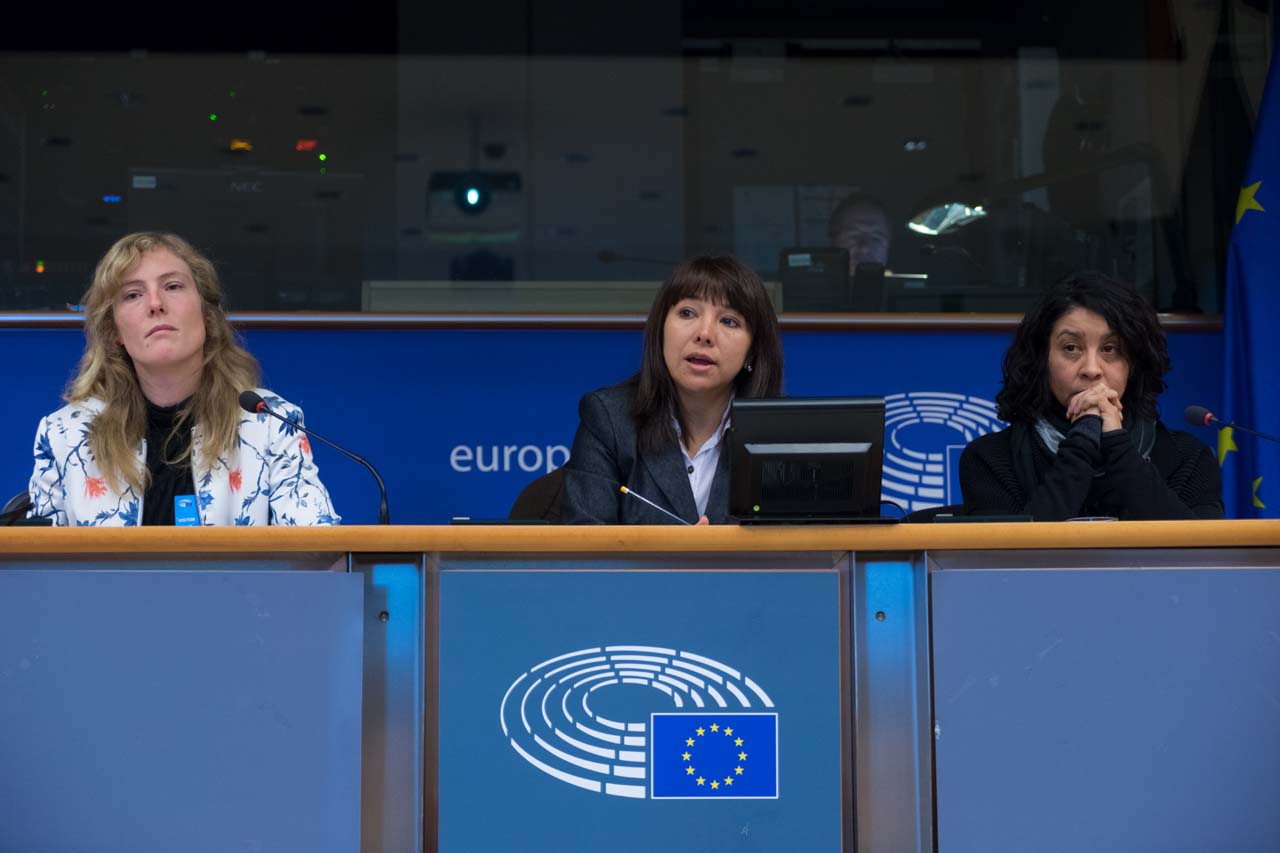The European Parliament approves resolution on “Women, Gender Equality and Climate Justice”
Mirtha Vásquez (GRUFIDES), Laura Lucio (ESF)
 25 January 2018
25 January 2018
The European Union (EU) has been concerned with the issues regarding the safety of human rights defenders (HRDs) for some time. In recent years HRDs has been victims of serious attacks by individuals or companies when trying to defend their territories against large projects with massive investments. There has been incidents where people have been attacked, assassinated in conjunction with various other human rights violations. Recently new light has been shed on the particular risk that women human rights defenders (WHRDs) are exposed to.
Due to such observations the EU has implemented new measures to not only protect HRDs, but also to minimize the impacts of the large projects has on the population and their territories. The EU recognized that the protection of various ecosystems and the environment is a fundamental aspect when facing increasing risks of global climate change.
Hence, parliamentary members from the green european parties presented a draft resolution on “Women, Gender Equality and Climate Change”. In order to highlight the importance of the initiative they invited Latin-American environmental defenders such as Mirtha Vásquez to speak. Mirtha Vásquez is mainly concerned with defending community rights in Peru and is a member of the Latin-American network of women earth and human rights defenders. She spoke about the importance of women in the struggle of environmental defence, and about the asymmetrical impact felt by women. This situation has been drastically intensified in light of recent years climate change context.
On January the 16th 2018 the European Parliament approved of this resolution. It establishes different principles that could strengthen the resilience of women and the protection of their human rights. The resolution has many objectives regarding the improvement of women’s role in decision-making processes. This mainly concerns processes regarding climate and environmental issues. Such advances could be an important catalyst for the inclusion of human and eco-territorial rights in the process of decision-making at the local level. It particularly affects the management of natural resources, the environment and the prioritization of rural sustainable development policies at the national level in order to tackle the extractivist model.
Furthermore, the resolution emphasizes the necessity of strengthening the right of access to land and ownership by women as an important measure to guarantee gender empowerment. It can be an important mechanism that enables communities to preserve their traditional territories that are currently endangered by extractive industries. Extractive industries are generally regarded as one of the central causes of climate change and environmental degradation.
Given the relation between extractive industries and climate change we believe that the intervention and protection of WHRDs is fundamental. We would like to thank and celebrate this progress that, above all, recognizes women as active agents in the defense of their territory, with regards to the mitigation and adaptation necessary in order to face new climate risks.
The contents of this article are the sole responsibility of CATAPA and can under no circumstance be regarded as reflecting the position of the European Union



